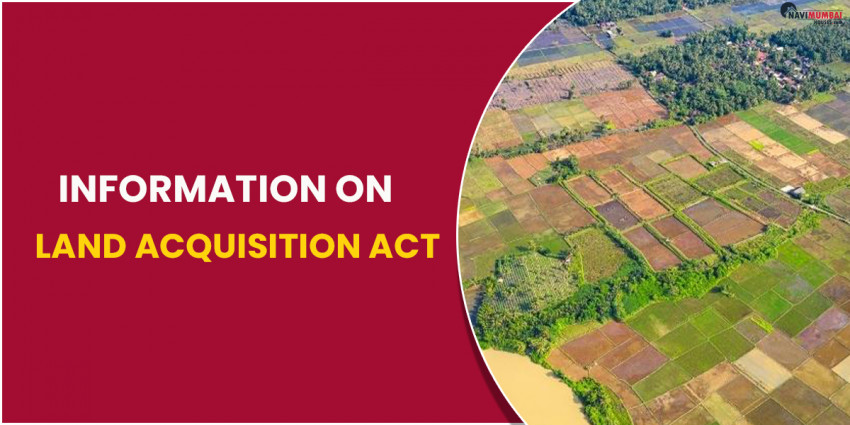
The outdated Land Acquisition Act, 1894 has been replaced with the Right to Fair Recompense and Transparency in Land Acquisition, Rehabilitation and Resettlement Act, 2013, which introduces a new process focused at providing individuals impacted with fair compensation.
What exactly is Land Purchase?
The practice of land acquisition allows the government (federal or state) to purchase private property for a variety of uses. In exchange, the government gives the landowner a fair compensation and would be in charge of the affected landowners' rehabilitation and relocation.
What is 2013 Land Acquisition Act?
The entire land purchase process is governed and regulated by the Land Acquisition Act of 2013. The Act lays out the requirement to provide landowners a just compensation.
Objectives of Land Acquisition Act
• Should make sure that the land acquisition process is transparent, after consulting with all the interested parties and the local governing bodies.
• Having land ownership or remaining on the property will ensure the least amount of population relocation.
• To offer just compensation to the families whose livelihoods have been impacted by the land acquisition, or whose land has been acquired.
• Should make suitable arrangements for the affected families' rehabilitation and relocation.
Land Acquisition Act's Aim
Land can be purchased by the government for its own use, for public sector organizations, or for "public purposes," which can include any of the following:
• For any task falling under the purview of the state or federal government that relates to state or national security or the Indian armed forces, such as the navy, army, air force, or other armed forces.
• Omitting private hospitals, private educational institutions, and private hotels when creating public infrastructure.
• For any government-run or farmer-owned cooperative initiative involving agricultural or related fields like dairy, fishery, or meat processing.
• For projects mentioned in the National Manufacturing Policy, such as industrial corridors, manufacturing zones, or other initiatives. This can also refer to mining operations.
• For planned advancement of village sites, water harvesting projects, or conservation structure initiatives.
• For institutions of higher learning and research with government support.
• To create housing projects for the less fortunate in rural or urban regions.
• For creating housing projects for those who are poor, landless, or impacted by natural disasters.
Agreement under the Land Acquisition Act is Essential
The cooperation of the landowners is not required when the government buys land for public use and directly manages the land bank. However, the approval of at least 80% of the affected families is required when the land is bought for the creation of private businesses. 70% of the impacted families must approve the land purchase procedure if the project is carried out through a public-private partnership.
Under Land Acquisition Act, Payment
The Act's Section 26 addresses compensation for landowners. The suggested minimum salary is described, based on multiples of the market value. For land purchased in rural or urban regions, the market value is typically increased by a factor of one to two.
The average selling price for related types of land located in the nearby village or neighborhood determines the land's market value. This purchase price is calculated by taking into account 50 percent of all sale deeds or purchase agreements that include the highest price.
In the event that the land is purchased for private businesses or projects involving public-private partnerships, the compensation may also be an agreed-upon sum.
Source from: navimumbaihouses





